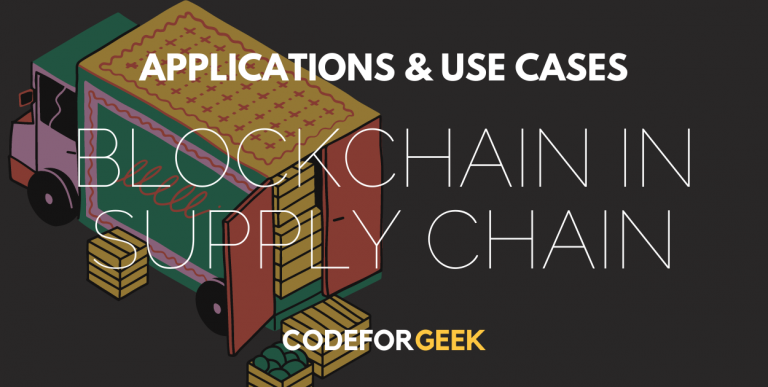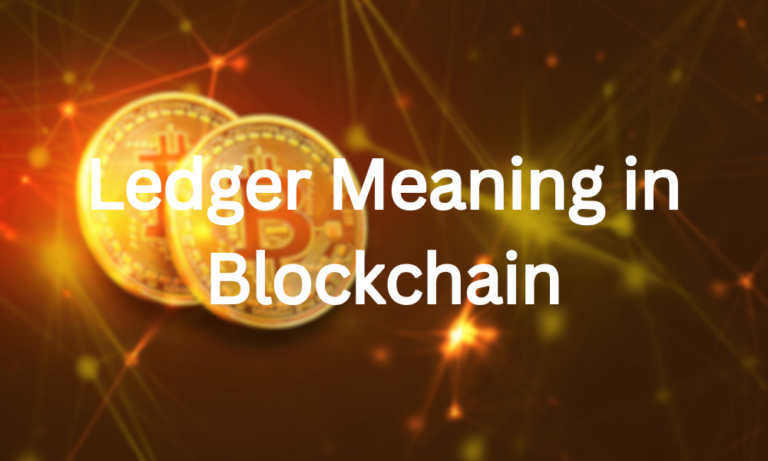New to Rust? Grab our free Rust for Beginners eBook Get it free →
Blockchain in Supply Chain: Amazing Applications and Use Cases

Blockchain in supply chain – yet another application of blockchain technology! Yes, this is what we are talking about today.
The world we live in today is not experienced in living without industrialization, digitalization, and most importantly, convenience. When I say convenience, you probably already guessed where I am going with this…
It’s the supply chain that I am talking about. Looking back in time around the early to mid-20th century, the supply chain of today is very complex. And without technology, unmanageable – a 100%.
Maersk, one of the world’s largest shipment companies, mentioned this in their report on blockchain in logistics – “a simple shipment of refrigerated goods from East Africa to Europe can go through nearly 30 people and organizations, with more than 200 different interactions and communications among these parties.”
The recipe for successful supply chain and logistics management processes involves the use of solid communication channels with multi-geographic and multi-industry participants.
Blockchain technology promises to slash an entire layer of intricacies from a supply chain that is, lack transparency, elimination of intermediaries and so much more.
In this blog, I will be conquering some of the useful and innovative applications and use cases of blockchain in supply chain. But before we proceed, let us make sure we have our basics right, by understanding what blockchain really is. With that done, we will then take a look at the use cases.
So let us get started.
What is Blockchain?
A blockchain network is a chain of connected blocks that works on a shared or decentralized ledger system. This system records transactions and other data on the shared and secured ledger and stores them inside cryptographically secured blocks.
A copy of every transaction taking place on the network is stored across various nodes or machines or computers scattered worldwide. These blocks also contain other data in them.
Once stored, this data becomes immutable, that is, it becomes near impossible to change or delete it. These pieces of data reside in their original form in the blocks assigned to them and forever, without letting anyone tamper with them.
The owner of the data or verified nodes has a key to these blocks that let them make changes to some extent. However, for changes to actually take place, all nodes on the network must validate and verify these changes.
If all nodes on the chain validate them, the changes will take effect. If at all someone tries to tamper with the data stored in these blocks, these nodes may disagree and the changes will not take place.
These nodes make use of hard drive space to do the same. Some networks also incentivize these nodes who have higher amounts of space to validate and verify blocks when adding new ones to the blockchain.
Blockchains are decentralized meaning they eliminate all central intermediaries like banks and governments. This way it maintains transparency.
The architecture is designed in a way that every previous block is linked to the next block on the network. This way the data stays linked with every block on the network.
Ready to learn more about blockchain technology? Read this blog.
Let us now move on to looking at the amazing use cases of blockchain in supply chain.
Blockchain in Supply Chain: Amazing Use Cases & Applications
Let us see what are the blockchain use cases and application is blockchain in supply chain.
Diamond Info Tracker
De Beer, the largest diamond producer made use of blockchain technology to give their consumers every information about their diamonds, photos, color, quality, and location where it was.
Wine Supply Tracker
Origintrail, in association with TagItSmart, was able to successfully monitor and track more than 15,000 wine bottles with the help of blockchain.
Food Safety
Blockchain can save lives really! With the help of the technology by keeping track of the supply locations of food inventories. With the E. coli outbreak resulting in food wastage every year in gigantic amounts, blockchain has come to the rescue and is helping save the food and lives of many.
Oil Supply Tracker
Abu Dhabi National Oil Company (ADNOC) joined hands with IBM to automate the tracking of oil from its extraction from refineries till its journey to its customers.
Secure Supplier Payments
With the emergence of blockchain in supply chain, businesses are now able to securely pay to their suppliers. One popular example is the coffee industry. Bext360 successfully boosted its supply chain performance and productivity with the help of fast and secure, low-cost international payments using cryptocurrencies. It was also able to track all elements from farmers to consumers, easily.
Conclusion
The recipe for successful supply chain and logistics management processes involves the use of solid communication channels with multi-geographic and multi-industry participants.
Blockchain technology promises to slash an entire layer of intricacies from a supply chain that is, lack of transparency, elimination of intermediaries and so much more.
In this blog, I have covered some of the useful and innovative applications and use cases of blockchain in supply chain.





